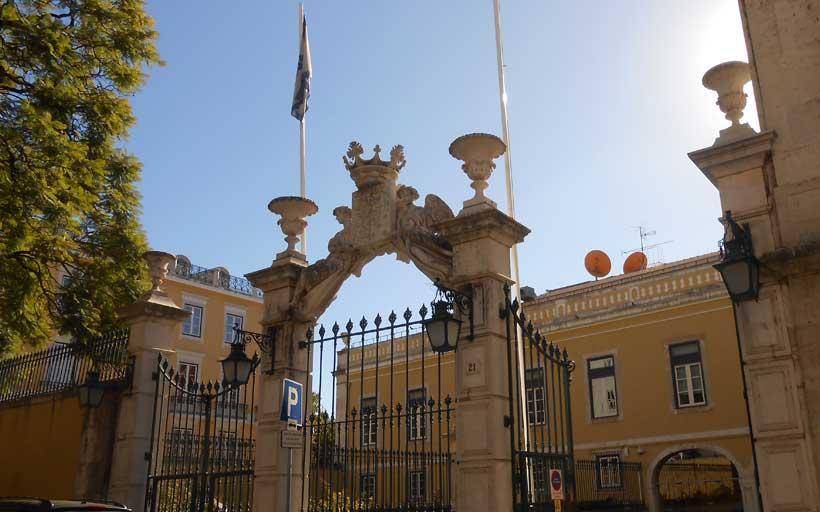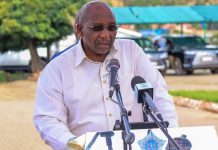By
Dr. Aurobindo Xavier
Africa-Press – Lesotho. Which are the African countries with Portuguese as their official language (PALOP)?
On the African continent, the six Portuguese official-speaking countries are Angola, Cape Verde, Guinea-Bissau, Mozambique, São Tomé e Príncipe and Equatorial Guinea which constitute a regional community with the designation PALOP (Países Africanos de Língua Oficial Portuguesa – Portuguese official-speaking African Countries). All of these countries, except Equatorial Guinea, were Portuguese colonies for about 450 years.
The PALOP countries, along with the other former Portuguese colonies located outside of Africa, constitute, along with Portugal, an international organization called CPLP (Comunidade dos Países de Língua Portuguesa – Community of Portuguese Speaking Countries).
While the PALOP have a 450-year colonial history in common, their economic and social development is quite divergent.
A recent OECD report says that they all need to improve education and technical training to respond to the needs of the labor market. The International Monetary Fund (IMF) writes in its 2024 World Economic Perspectives, in more optimistic terms, that Guinea-Bissau and Mozambique will have the highest growth this year among PALOP economies, both with an expansion of 5%.
© OpenStreetMap contributors
The multipolar world, the rise of BRICS, and the PALOP
Background
During the last decade we have witnessed a decline of the United States of America, the superpower that until recently dominated the planet, in its various facets: economic, diplomatic, military and political power. It was their defeat in Afghanistan that seemed to have signaled both, its decline and the changing world.
The reasons for this decline are manifold: public debt, economic inequality, corruption, spending on military expansion, cultural and political fissures. All of them are being intensely discussed in America.
The majority of discussions seek to find solutions to the major problems that afflict the country and it seems that there is rebounding one primary conclusion: whatever the political nature of the American government may be, they will only be able to manage the decline and mitigate its effects, because the causes are of such a magnitude that there is no solution in sight.
The main reason seems to be the national debt which amounts to $34 trillion. Because the country’s economy accounts for $27.8 trillion, there would be a debt-to-GDP ratio of 122.30%, walking to 150% by 2028. In the year 2000 the ratio was 56% and in 1980 36%. It seems no real solution can be expected to this problem which is of unmeasurable dimensions. Thus, the decline of America’s world hegemony is possibly irreversible.
Emergence of BRICS as a global economic power
As a result of the decline of the United States there has been an uncontestable rise of certain powers in the world’s new multipolar order. Differently from the Cold War bipolar period, there has also been an increase in international organizations where national boundaries became less important to trade and economy.
Among these new powers, the BRICS, an intergovernmental organization founded by China, Russia, Brazil, India, and South Africa, may be the most important for the PALOP, given that both, BRICS and PALOP, economically and politically belong to the global south, which strives to reshape the world order by shifting the center of influence from global north to the global south.
Below are listed some arguments that speak for a better connection between the BRICS and PALOP.
Because the primary goal of BRICS is to promote measures of sustainable socio-economic development in the emerging countries, the PALOP would have great advantage in working with the BRICS. The BRICS are also a very relevant organization to the PALOP as they may contribute to a greater insertion of emerging economies in the world economy and international geopolitical context. And given the fact that Angola is neighboring South Africa and that Brazil is a CPLP member, BRICS can be considered a summation for the PALOP.
After their foundation in 2015, it was only recently that BRICS admitted new members, in a China-led effort and to a lesser extent by Russia. At its historical 15th summit held in 2023 in Johannesburg, the organization decided to admit five new members, two of which are African: Egypt and Ethiopia, and three of the Middle East: Saudi Arabia, Iran and UAE. The official admission was consummated on January 1, 2024.
BRICS+, as the BRICS are often informally called after expansion, now account for 37.3% of the world GDP, which is more than double that of the EU (14.5%). In energy terms it is interesting to emphasize that some of these new members belong to the world’s largest producers and buyers of energy, such as Iran, Saudi Arabia and UAE, representing about 32% of the worldwide production of natural gas and 43% of crude oil.
And most of all, it turns out that BRICS+ doubled its area, thus gaining even more geopolitical and economical weight, reinforcing the idea of a new international order.
In economic terms the PALOP could benefit greatly through the New Development Bank (NDB), founded by the BRICS. NDB has sustained infrastructure and development projects for emerging markets and developing countries (EMDCs). The bank has lately admitted four countries as new members, Bangladesh, UAE, Egypt and Uruguay, the latter’s admission being still pending.
At the African Development Bank Group recent meeting in Nairobi Vincent O. Nmehielle, Secretary-General, stated that the bank provides immense trade and investment opportunities to the African continent, which would favor the PALOP in its collaboration with the BRICS.
As a consequence of the inclusion of Egypt and Ethiopia into BRICS the pressure on PALOPto rapidly define their strategy in the new multipolar world has clearly increased.
In this context it is possible and even desirable for Angola to join the BRICS, as João Lourenço, president of Angola, promised at the 10th BRICS summit in 2018.
The next BRICS summit will be held from 22-24 October this year in Kazan under Russian presidency with the topic “Strengthening Multilateralism for Fair Development and Global Security”, focusing on positive and constructive cooperation with all countries involved.
What advantage would PALOP have in the de-dollarization intended by the BRICS?
BRICS+ countries are strongly interested in developing greater independence of the Western-led international monetary system.
This interest stems from the suit that about 90% of global currency transactions are held in dollars and flow primarily through US and European banks.
Recent Western financial sanctions against Russia have underscored the powerful systemic influence that the US still maintain through the World Bank and its central role in the global financial system.
However, a rapid de-dollarization is not in BRICS plans, because it is difficult to overcome the US barrier with their global long-standing alliances and partnership network. Therefore, BRICS aim to dethrone the US dollar as the world’s reserve currency, encouraging the use of local currencies for international trade.
It is true that such a transition could disrupt the established economic order, but would certainly have significant and probably positive repercussions on dollar-dependent economies, particularly the weaker ones such as those of the PALOP.
The US dollar is still dominating, but de-dollarization is unstoppable, writes Yuefen Li, economist and special advisor for South-South Cooperation and Central-South Development Financing, in Geneva.
Even Kenyan President William Ruto has urged African countries to move away from the US dollar in intracontinental trade and adopt the use of local currency to improve cross-border trade in Africa as a whole. This appeal was primarily driven by the economic disturbances caused by the rapid depreciation of regional currencies in the face of the US dollar.
Strong countries, relevant to PALOP
While defining their strategy the PALOP should pay attention not only to the BRICS, but also to the stronger countries acting in Africa, such as China, Russia, America or Portugal.
For decades, the US, Russia and China have been fighting a geopolitical battle in Africa and, for now, within the PALOP, the Russians seem to be politically asserting themselves as the great dominant power.
China
All PALOP countries are standing in line to maintain cooperation with China in order to obtain funds for carrying out infrastructure and development works. China in turn is seeking trade opportunities and new markets for exports.
The China-Portuguese Speaking Countries Cooperation and Development Fund (CPDFUND), established in 2013, is a relevant instrument for China. By 2024 it has already accomplished 10 projects with an investment of $470 million.
“Jornal de Angola”, an Angolan newspaper, says that commercial exchanges between China and the PALOP reached an amount of $220.9 billion in 2023.
In order to show its solidarity China has recently forgiven the PALOP debts already due on interest-free loans worth an equivalent of about $80 million.
Despite this, the mutually beneficial cooperation between China and the PALOP is criticized mainly in the Western world, accusing China of practicing debt-trap diplomacy with onerous loan packages to explore African countries. But African leaders state that China respects their countries and does not interfere or coerce their policies.
In economic terms, Angola is a strong bastion of China in the PALOP, which is reflected in the roughly 400 Chinese companies operating in Angola with an accumulated value of investment exceeding $24 billion.
The recent Economic and Commercial Cooperation Meeting between China and the PALOP in Luanda, Angola, in July 2024, where economic diversification was discussed in depth, contributed to the strengthening of the cooperation with China.
Russia
Russia has a long history of friendship with the PALOP, having supported them significantly during the time of liberation from colonial rule, and with development aid after their respective independence in the 1970s.
This good historical relationship is presently still reflected in UN votes, where the PALOP often support Russia. Recent examples are of March 2022 and February 2023, when Guinea-Bissau was absent from the UN General Assembly hemicycle during the votation of resolutions to condemn the Russian invasion of Ukraine.
It all leads to believe that Russia has a well-defined strategy regarding the PALOP, framed in its policy for Africa. Thus, in the case of São Tomé e Príncipe and Guinea-Bissau, Russia seems to be focused on strategic access to the Atlantic Ocean, which would be of imminent importance in geopolitical and military terms to them.
But there are also economic interests. Thus, ALROSA, a company representing Russian interests in the diamond segment in Angola, owns 9 percent of the total production of precious stones in the country.
All six PALOP countries have signed agreements on military cooperation with Russia, being São Tomé e Príncipe the most recent and the deal with Angola by far the most ambitious. The plan attached to the military and police cooperation agreement between Russia and Angola for the years 2014-2020, whose individual programs only end when they are completed, also previews the construction of weapons factories with Russian patents on Angolan territory.
Since Russia has a significant number of helicopters in Angola it is probable that a base is going to be established in the region.
Portugal
Being the former colonial power of the PALOP, Portugal is a member of the CPLP. It is also a member of the European Union and the NATO being completely integrated into the Western sphere of liberal democracy.
The PALOP’s good relationship with Portugal is historically of umbilical nature which surely contributes to good deals between Portugal and the former colonies.
We would also like to point out the important triangular cooperation between Ibero-America and the PALOP, such as the First Call for Triangular Cooperation Projects and Initiatives.
But any PALOP strategic initiative in relation to Portugal will have to take into account the huge debt to Portugal which according to Banco de Portugal data amounts to €2.5 billion.
What strategy should the PALOP follow to maximize its interests?
After having described the particularities of the PALOP countries in their different strands and their relationship to the new powers of the multipolar world, I would now like to outline a strategy for the maximization of PALOP’s interests as a whole.
The aim of the paper is to open a discussion on the criteria which are needed to develop an economic and industrial policy aware of the seriousness of future risks and capable of facing such risks with the necessary wisdom and through the concerted support of the major countries, as well as through international inter-state collaboration.
I would like to stress that we are opening a discussion on the autonomy for the PALOP as a bloc, as a whole, not a strategy for each of the PALOP countries. In other words, it is a kind of suggestion of federalization of the PALOP, in which powers are divided, in a particular way, between the central government on the one hand, for example in the field of external relations, and the national powers on the other hand, with their cultural, political and economic specificities.
New centers of power are currently emerging in many parts of the world, in demographic, economic, and ultimately political sense, and in parallel, supranationalism is found to be on the rise marking a fundamental change in the way how nations work jointly and face common challenges.
But unfortunately, PALOP is not a political bloc with a unique voice as far as external relationships are concerned.
A strategy for a federative unit
A supranational organization that amalgamates all PALOP countries for foreign policy and transcends national boundaries becomes indispensable, it does not mean however that merging would make nation-states dispensable.
The PALOP need a more realistic mindset, they need member states willing to advance to a more modular foreign policy in order to gain more like-minded partners and allies worldwide and, above all, they need to be visionary.
By sharing their sovereignty with the aim to create a unique political bloc, the PALOP countries could use their collective strength to face complex problems and promote a greater claim on the global board, as a political world force and consequently value their further Africanization and Lusophonization.
But as world economy and reference points are currently in constant and rapid change, there has to be sufficient political skill for increased coordination among PALOP’s member countries.
It is true that establishing a dynamic strategy that encompasses all PALOP countries is tremendously difficult in face of ethnic, tribal, religious diversities, social inequalities and geographical locations of each of the constituent countries.
However, federalism exists with different degrees and nuances in which the individual elements together form a whole, in a way that organizational elements of the individual countries remain largely independent, although some tasks are transferred to the upper level.
Such a supranational and single entity of the PALOP would certainly slowly evolve into a powerful organization exerting influence on global affairs, which through their common foreign policy offer their member states a world-wide degree of sovereignty, which is denied to them as an individual national power.
Thus, PALOP as a bloc in external relations would acquire a strategic worldwide compass becoming a powerful and consequently an attractive partner.
For political malleability it would of utmost importance that there was a permanent coordinating commission from the outset which would discuss the common model of PALOP’s compulsory responsibilities against a common foreign policy. This point is crucial because each of the PALOP countries will have to make important concessions and changes to their national bodies.
Recent agreements as there are between the EU and Angola for Sustainable Investment Facilitation (SIFA), with the aim of stimulating foreign investment are counterproductive for a unified PALOP policy and would only foster division among the countries.
Conclusion
The PALOP will have to develop a new image for themselves and for their role in the world in order to strengthen their ability to strategically exercise their strong power, something that could also be a reflection of a renewed national pride policy and awareness.
It is not easy to achieve a political union capable of acting as a powerful global actor in geopolitics without simultaneously having a strong autonomy.
The PALOP as a whole must, at least in their external relationships, become a sovereign and strategically experienced entity.
The PALOP bloc with a population of over 67 million could more easily use resources from the BRICS, Brazil, CPLP and other countries preferably Portugal but also China and Russia, thus transforming itself into a powerful open gateway to the world. The path to this goal requires a multitude of reforms and initiatives.
It is worth to mention that there already exists a political embryo of federalization in Africa and PALOP should take advantage of that. This is the case of the Sahel Zone, where the leaders of Niger, Burkina Faso and Mali have recently launched the idea of a common currency that postulates a harmonization of government policies.
It may be true that at this point not all PALOP countries see problems with the same glasses, so their strategic perceptions may be different.
Strategic autonomy is not a magical formula which simply passes through the condition of national states to a federation, but rather a long-term process which may include a confederation phase and which should lead to the point where PALOP takes the unification in its own hands in order to defend its interests and values in an increasingly harsh world, a world that forces us to rely on ourselves in order to secure our future.
moderndiplomacy
For More News And Analysis About Lesotho Follow Africa-Press






